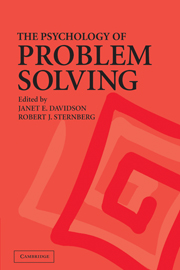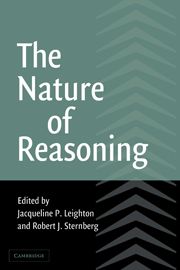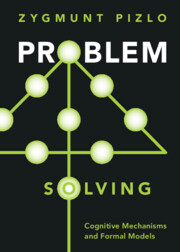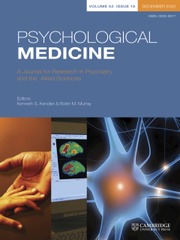The Psychology of Problem Solving
Unlike typical books on problem solving that are organized by content areas, such as mathematics and natural science, this book is organized by factors that affect problem solving performance, such as motivation, emotion, intellectual abilities, and working memory. Its goal is to organize in one volume all that is known about problem solving and the factors that contribute to its success or failure.
- The book contains chapters from leading researchers in the field of problem solving
- Unlike other books on this topic, this one focuses on the factors that influence individuals' problem solving performance
Reviews & endorsements
"[P]rovides a contemporary summary of the psychological aspects of problem solving, including such topics as problem recognition, transfer, working memory, and other topics..." American Journal of Physics
"The richness of the discussion throughout the various chapters, and the sheer quantity of information used to illustrate each point of view are impressive...an excellent look at both the history of problem solving research and the current state of the field...extremely valuable..." William Altman, Broome Community College, Teachers College Record
"A good book on any subject should summarize the current state of knowledge, and point to the important areas where further work is needed, and this book does both. Overall, this is a very stimulating collection, which all researchers in problem solving will wish to consult." Trends in Cognitive Sciences
Product details
June 2003Hardback
9780521793339
408 pages
229 × 152 × 27 mm
0.77kg
14 b/w illus. 6 tables
Available
Table of Contents
- Part I. Introduction:
- 1. Recognizing, defining, and representing problems
- 2. The acquisition of expert performance as problem solving: construction and modification of mediating mechanisms through deliberate practice
- Part II. Relevant Abilities and Skills:
- 3. Is success or failure at problem solving complex problems related to intellectual ability?
- 4. Creativity: a source of difficulty in problem solving
- 5. Insights about insightful problem solving
- 6. The role of working memory in problem solving
- 7. Comprehension of text in problem solving
- Part III. States and Strategies:
- 8. Motivating self-regulated problem solvers
- 9. Feeling and thinking: implications for problem solving
- 10. The fundamental computational biases of human cognition: heuristics that (sometimes) impair decision making and problem solving
- 11. Analogical transfer in problem solving
- Part IV. Conclusions and Integration:
- 12. Problem-solving, large/small, hard/easy problem-space/problem-solver: the issue of dichotomization.











